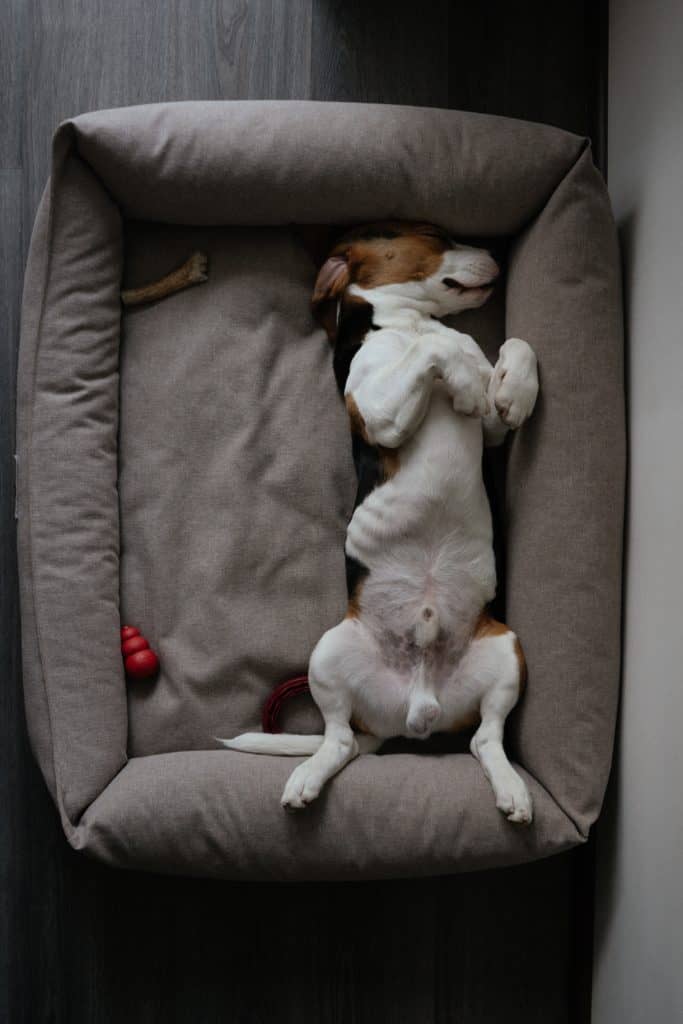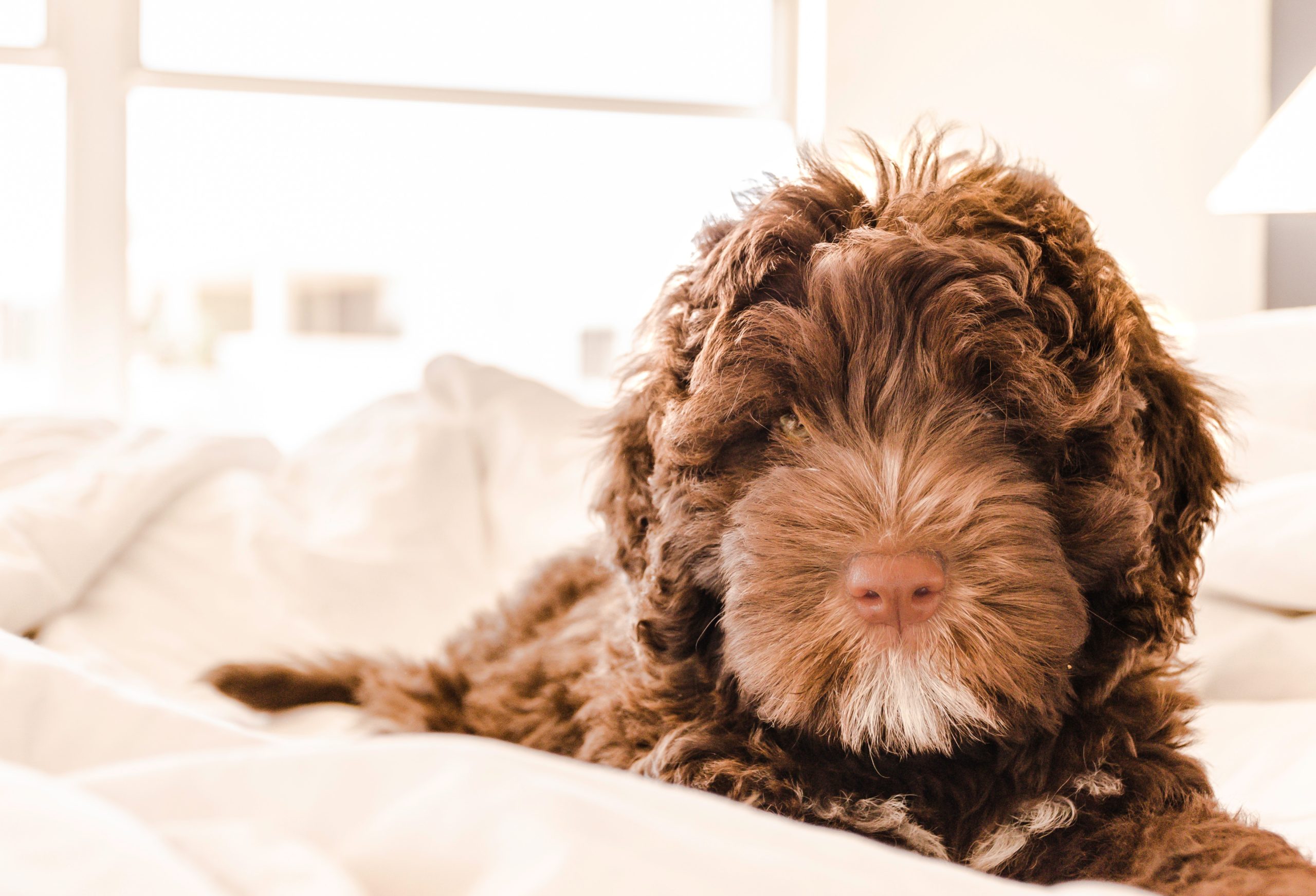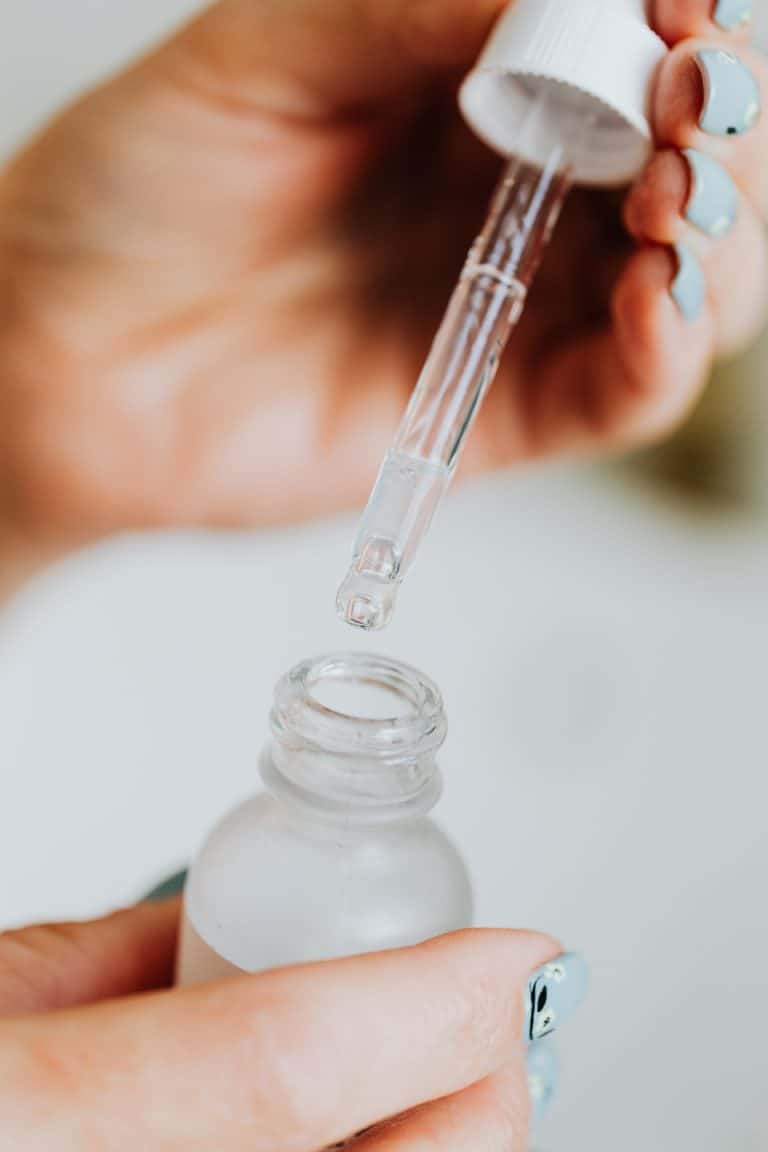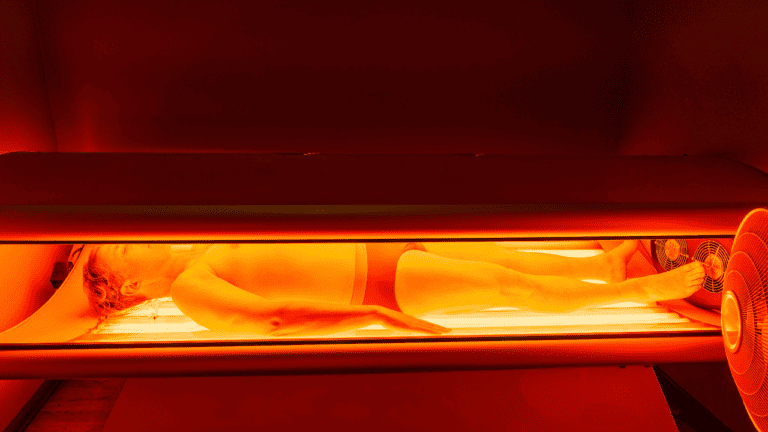Dogs are so lovable, the moment you climb into bed, they often want to jump right in with you, they’re like the best cuddle buddy you could ever have, but have you ever considered the impact they have on your skin? Many of us have probably wondered if they might be causing our acne, so let’s explore this topic and see if there is any truth to this claim.
The short answer to this question is that dogs don’t necessarily cause acne because they are not the reason for the overproduction of oil in your skin, however, they might contribute to acne flare-ups because they bring home dirt, bacteria, and possibly even fecal matter. Especially if they sleep together with you in bed then you are exposing your skin to more dirt and bacteria overnight than you should.
But, they aren’t the root of the problem, so let’s deep dive into this topic, and figure out what you could do from training them to sleep in their own bed, or hygiene practices you should follow if you still want to let them jump in and cuddle.
Can Dogs Cause Acne?
If we want to know if our dog is causing acne, it’s important to know what typically causes acne. The cause of acne usually boils down to the overproduction of oil that mixes with dirt and bacteria that we come into contact with on a daily basis. When our hair follicles become clogged with oil and dead skin cells, or dirt, acne could occur. While there are several factors to consider, there is a potential risk of bacterial transfer and fur-clogging pores if you let your dog sleep on your bed. That being said, this is not a universal issue and can be minimized with proper grooming and hygiene practices. Ultimately, the decision of whether to share a bed with your dog comes down to personal preference and individual circumstances.
How Easily Dirt and Bacteria Come In From The Outside
If you enjoy taking your dog out for daily walks, bringing them to trails, and playing at dog parks, there’s a multitude of chances for them to bring home so much bacteria that is invisible to the naked eye. They bring home dirt, bacteria, and even possibly fecal matter. In addition to this, many people do not wipe down their dogs after walks or groom them every day to remove loose fur and dander which could cause skin irritation in the form of acne.
Dog’s Fur Could Be Clogging Your Pores
Most dogs shed a lot of furs, unless your dog is hypoallergenic, meaning they have hair, not fur. If your dog is often in your bed or room, their fur could be accumulating on your bed and pillowcases. This means that whilst you sleep, your skin is in contact with the fur that has been outside and covered in dirt and bacteria.
Allergies Could Be The Problem
Some people are allergic to dogs as well. Perhaps your allergic reaction is very small and you don’t sneeze like most people. Allergic reactions are different for everyone, but one of them is skin irritation, which can show up as acne. That being said, many people who sleep with their dogs do not experience any negative impact on their skin’s health likely because their genetics allows them to do so.
Types of Bacteria Found on Dogs
Dogs are naturally hosts to various bacteria on their skin and in their mouths, but not all of these bacteria pose a threat to humans. Some common types of bacteria found on dogs include E. coli, streptococcus, and staphylococcus. Although harmless to canines, these bacteria can lead to infections in humans if they enter through broken skin or mucous membranes.
As such, it is vital to maintain good hygiene practices, such as washing your hands after handling your dog or its belongings, to minimize the likelihood of infection, or acne. This is very hard to prevent if you let your dog sleep with you every night.
Furthermore, it is recommended to keep your dog away from humans if they have a skin infection or open wound until the infection has been cleared to prevent the spread of bacteria. So if you’ve popped a pimple recently, we don’t recommend snuggling up to your dog until your wound has healed.
What To Do If You Think Your Dog Is Causing Your Acne
Although there is no scientific evidence that dogs specifically cause acne, there are several things that you could do that can reduce your dog-related acne flare-ups. Mainly, there are two main methods to think of, the first is keeping your dog off your bed, and the other is leveling up your hygiene methods related to your dog, especially if you want to let them sleep in your bed at night.
How To Deter Your Best Friend From Your Bed
It can be hard because dogs are the best cuddle buddies, but if you are determined to try and deter your dog from sleeping in your bed here are some things you could try.
Give Them Their Own Bed
Firstly, you could teach your dog to sleep in its own bed or crate by making it a comfortable and inviting sleeping area. You could also use positive reinforcement by rewarding your dog with treats and praise when they go to their own bed and redirecting them if they try to jump on your bed.

It is also important to wash their own bedding regularly because it would be accumulating all of the dirt and bacteria in their fur instead. Remember that dog’s have skin too, so use a dog-friendly gentle, fragrance-free detergent.
Let Them Play
Another important factor is to ensure your dog gets enough exercise and playtime during the day, as boredom or excess energy can often lead to bed-hopping at night. If necessary, you could close your bedroom door to keep your dog out of the room while you sleep.
Deterrents
Alternatively, you could try using deterrents such as motion-activated alarms, pet barriers, or even double-sided tape or aluminum foil on your bed to discourage your dog from jumping on it. Remember, consistency and patience are key when it comes to training your furry friend, so be sure to provide them with plenty of love and attention no matter where they sleep.
Hygiene Measures To Take If You Still Want To Share The Bed

Some pet owners love sleeping with their pets because they feel close to them. Ultimately, whether or not to let your dog sleep on your bed is a personal decision. While there are some potential risks to consider, many pet owners enjoy the benefits of sharing a bed with their furry friend.
If you are concerned about the impact on your skin health, it’s recommended that you speak with a healthcare professional for personalized advice, but here are a few hygiene practices you can use in the meantime.
Clean Your Dog’s Paws After Walks and Before Bed
Before allowing your dog to climb into bed with you, clean their paws thoroughly, even our houses have dirt on the floor and our lovely furry friends walk on all fours all the time so
Use a Waterproof Mattress Cover or Liner
You never know when accidents happen, even with well-behaved dogs. To protect your mattress from any accidents or spills, use a waterproof mattress protector. It can help prevent any stains or odors from seeping into your mattress.
This will also help to reduce the amount of fur and dander build-up when you are not using your bed. Especially if your dog likes to sleep on it throughout the day.
Vacuum Your Mattress and Bedding
We don’t often think of putting a vacuum to our bed, but this is a great way to remove the fur and irritants that our skin dislikes.
Consider Having Multiple Bedding Sets At The Ready
It is a great idea to change mattress covers and blanket covers multiple times throughout the week, or month as often as you can, however, that amounts to doing a lot of laundry if you don’t have more than one bedding set. To make life easier,
Final Notes
While there is limited scientific research on the topic, there is some evidence to suggest that sleeping with your dog can increase the risk of developing acne. However, by following good hygiene practices and taking steps to reduce the amount of bacteria and germs that your dog brings into the bed, you can minimize this risk. If you do develop acne as a result of sleeping with your dog, there are several treatments available that can help clear up the condition.
Can certain dog breeds cause more acne breakouts?
Some dog breeds shed more than others, which may potentially contribute to acne breakouts. Breeds with long, thick fur may require more grooming to prevent acne breakouts. If you haven’t gotten a puppy yet, consider getting a hypoallergenic dog that has hair instead of fur.
How can I tell if my dog is causing my acne breakouts?
If you notice that your acne breakouts occur more frequently after sleeping with your dog, your dog may be contributing to the problem. To determine if this is the case, try sleeping separately from your dog for a week or two and see if your acne improves. If it does, you may need to adjust your hygiene routine when sleeping with your dog to prevent future breakouts. It’s recommended to consult with a dermatologist for personalized treatment recommendations if your acne persists.






